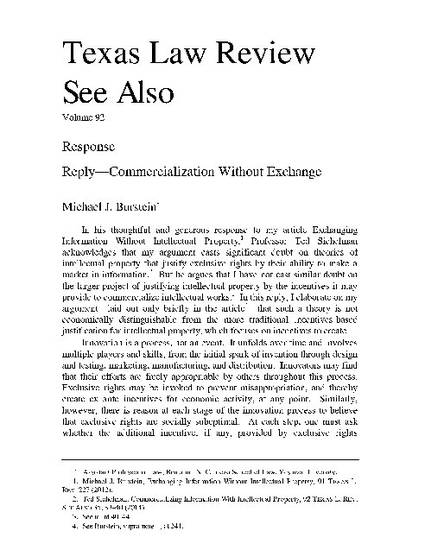
In this brief reply to Prof. Ted Sichelman’s comments on my article Exchanging Information Without Intellectual Property, I argue that justifications for intellectual property that rely on the incentives exclusive rights offer for commercialization are not economically distinguishable from traditional theories based on incentives to invent or create in the first instance. Because innovation is not an event but a process, innovative activities may be subject to misappropriation – and therefore under-production – at multiple points along the supply chain that runs from conception to commercialization. The grant of exclusive rights is an intervention that can be made at any of these points. Whether granted early or late in the innovation process, the economic function of the intervention is the same. Similarly, the intervention is subject to similar critiques – most notably that their social welfare costs exceed their benefits and that alternative forms of incentive may be just as effective at lower social cost – regardless of when it is made. The incentives-based “commercialization theory” therefore is really just a version of traditional “reward theory” set later in time. In my work, I isolate and critique a different economic function that exclusive rights may serve with respect to commercialization: that of facilitating exchange.
- patents,
- intellectual property,
- commercialization,
- commercialization theory,
- disclosure paradox
Available at: http://works.bepress.com/michael-burstein/16/
